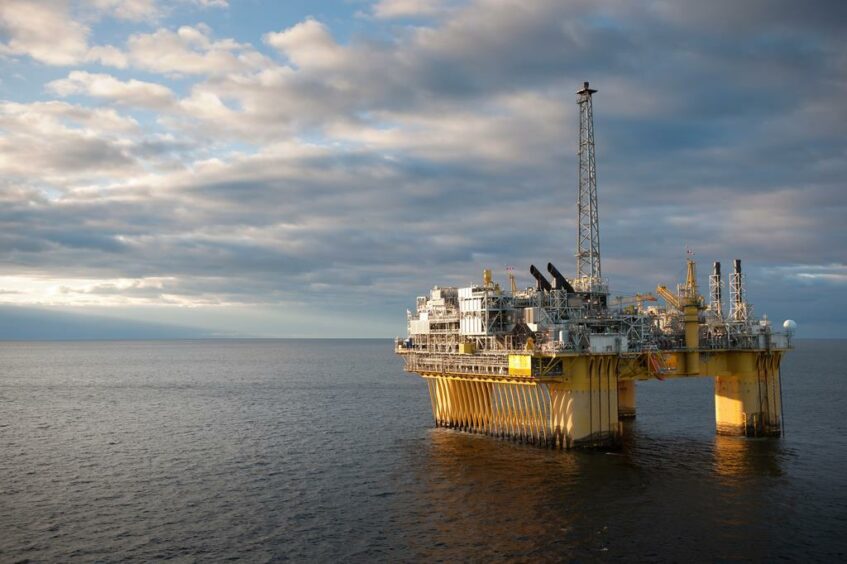
Equinor has been pulled up by the safety watchdog after faults that could have led to a “major gas leak” were found on one of its North Sea platforms.
During an inspection of Troll C installation last year to check the status of an ongoing job, the Petroleum Safety Authority (PSA) Norway found a black substance under a second-stage gas cooler.
It was then found that cracks had emerged in the compressor, with further investigations establishing that the liquid was asphaltene, a heavy crude oil component that had leaked out.
Similar issues were found with a cooler in the parallel process train.
While the leak caused no harm to people or the environment, it did result in a production shutdown and substantial repair work.
According to the PSA, under “slightly altered circumstances”, it could have developed, into a major gas leak, through brittle fracturing in the outer shell of one of the coolers, which held hydrocarbon gas under a pressure of 60 bar.
A number of reasons were given by the regulator as a reason for the incident.
The PSA said in a report: “The gas coolers are a shell and tube type, comprising an outer shell in 22%Cr duplex steel where gas circulates and an inner tubing bundle in titanium filled with coolant (seawater). The outer shell has a specified thickness of 36 millimetres. The coolers are protected by fire insulation on tank and flanges.
“Technical material investigations have concluded that the cracks were through-wall and caused by chloride stress corrosion cracking (CSCC), which had begun externally.
“The condition had developed over time, and it is difficult to date when cracks began to develop.
“Underlying causes of the incident include the design/construction of the coolers and their follow-up during the operational phase.”
Several “breaches of the regulations” were also flagged, including a lack of risk reduction, maintenance deficiencies and a failure to use information.
As a result Equinor (OSLO: EQNR) has been ordered to ensure a level of maintenance for the coolers on Troll C so they can perform their required functions.
The Norwegian energy giant also has to ensure that “failure modes related to corrosion under insulation on stainless steel materials are systematically prevented through maintenance programmes” on all its facilities and onshore plants.
Equinor has until December 1 to comply with the order.
A spokesman for the company said: “The incident was identified in a routine inspection and was followed up by an internal Equinor investigation. We take the incident seriously, and we will follow up findings in Equinor and PSA investigations to make sure similar incidents don’t occur.”
Recommended for you

